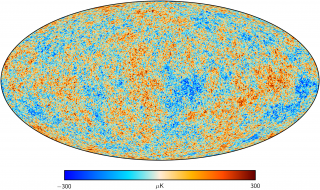Bibcode
Planck Collaboration; Aghanim, N.; Armitage-Caplan, C.; Arnaud, M.; Ashdown, M.; Atrio-Barandela, F.; Aumont, J.; Baccigalupi, C.; Banday, A. J.; Barreiro, R. B.; Bartlett, J. G.; Benabed, K.; Benoit-Lévy, A.; Bernard, J.-P.; Bersanelli, M.; Bielewicz, P.; Bobin, J.; Bock, J. J.; Bond, J. R.; Borrill, J.; Bouchet, F. R.; Bridges, M.; Burigana, C.; Butler, R. C.; Cardoso, J.-F.; Catalano, A.; Challinor, A.; Chamballu, A.; Chiang, H. C.; Chiang, L.-Y.; Christensen, P. R.; Clements, D. L.; Colombo, L. P. L.; Couchot, F.; Crill, B. P.; Curto, A.; Cuttaia, F.; Danese, L.; Davies, R. D.; Davis, R. J.; de Bernardis, P.; de Rosa, A.; de Zotti, G.; Delabrouille, J.; Diego, J. M.; Donzelli, S.; Doré, O.; Dupac, X.; Efstathiou, G.; Enßlin, T. A.; Eriksen, H. K.; Finelli, F.; Forni, O.; Frailis, M.; Franceschi, E.; Galeotta, S.; Ganga, K.; Giard, M.; Giardino, G.; González-Nuevo, J.; Górski, K. M.; Gratton, S.; Gregorio, A.; Gruppuso, A.; Hansen, F. K.; Hanson, D.; Harrison, D. L.; Helou, G.; Hildebrandt, S. R.; Hivon, E.; Hobson, M.; Holmes, W. A.; Hovest, W.; Huffenberger, K. M.; Jones, W. C.; Juvela, M.; Keihänen, E.; Keskitalo, R.; Kisner, T. S.; Knoche, J.; Knox, L.; Kunz, M.; Kurki-Suonio, H.; Lähteenmäki, A.; Lamarre, J.-M.; Lasenby, A.; Laureijs, R. J.; Lawrence, C. R.; Leonardi, R.; Lewis, A.; Liguori, M.; Lilje, P. B.; Linden-Vørnle, M.; López-Caniego, M.; Lubin, P. M.; Macías-Pérez, J. F.; Mandolesi, N.; Maris, M.; Marshall, D. J.; Martin, P. G. et al.
Bibliographical reference
Astronomy and Astrophysics, Volume 571, id.A27, 11 pp.
Advertised on:
11
2014
Journal
Citations
259
Refereed citations
233
Description
Our velocity relative to the rest frame of the cosmic microwave
background (CMB) generates a dipole temperature anisotropy on the sky
which has been well measured for more than 30 years, and has an accepted
amplitude of v/c = 1.23 × 10-3, or v = 369. In addition
to this signal generated by Doppler boosting of the CMB monopole, our
motion also modulates and aberrates the CMB temperature fluctuations (as
well as every other source of radiation at cosmological distances). This
is an order 10-3 effect applied to fluctuations which are
already one part in roughly 105, so it is quite small.
Nevertheless, it becomes detectable with the all-sky coverage, high
angular resolution, and low noise levels of the Planck satellite. Here
we report a first measurement of this velocity signature using the
aberration and modulation effects on the CMB temperature anisotropies,
finding a component in the known dipole direction, (l,b) =
(264°,48°), of 384 km s-1 ± 78 km
s-1 (stat.) ± 115 km s-1 (syst.). This is a
significant confirmation of the expected velocity.
"And yet it moves", the phrase popularly attributed to Galileo Galilei
after being forced to recant his view that the Earth goes around the
Sun.
Related projects

Anisotropy of the Cosmic Microwave Background
The general goal of this project is to determine and characterize the spatial and spectral variations in the temperature and polarisation of the Cosmic Microwave Background in angular scales from several arcminutes to several degrees. The primordial matter density fluctuations which originated the structure in the matter distribution of the present
Rafael
Rebolo López